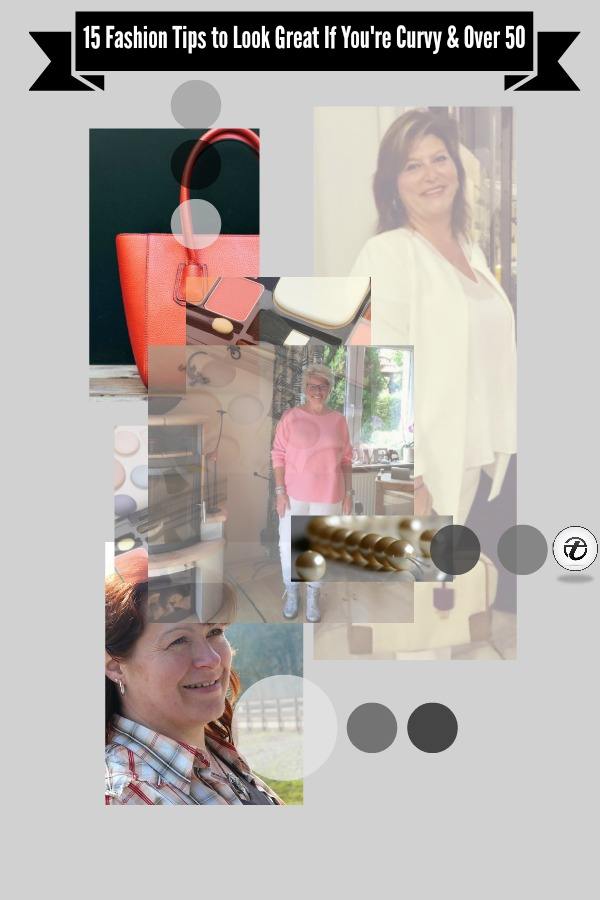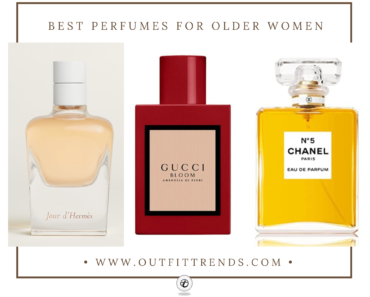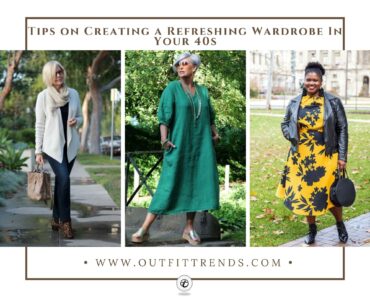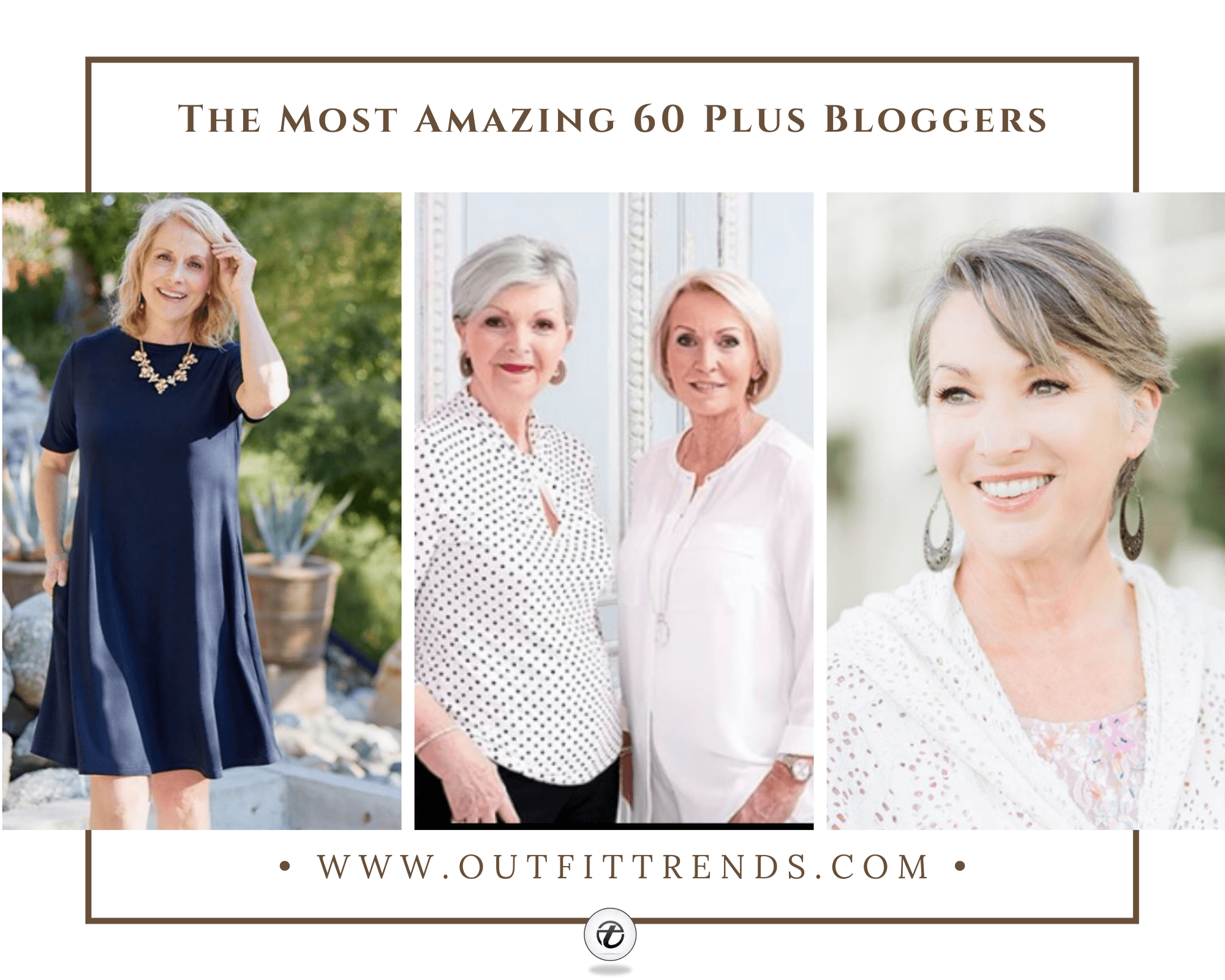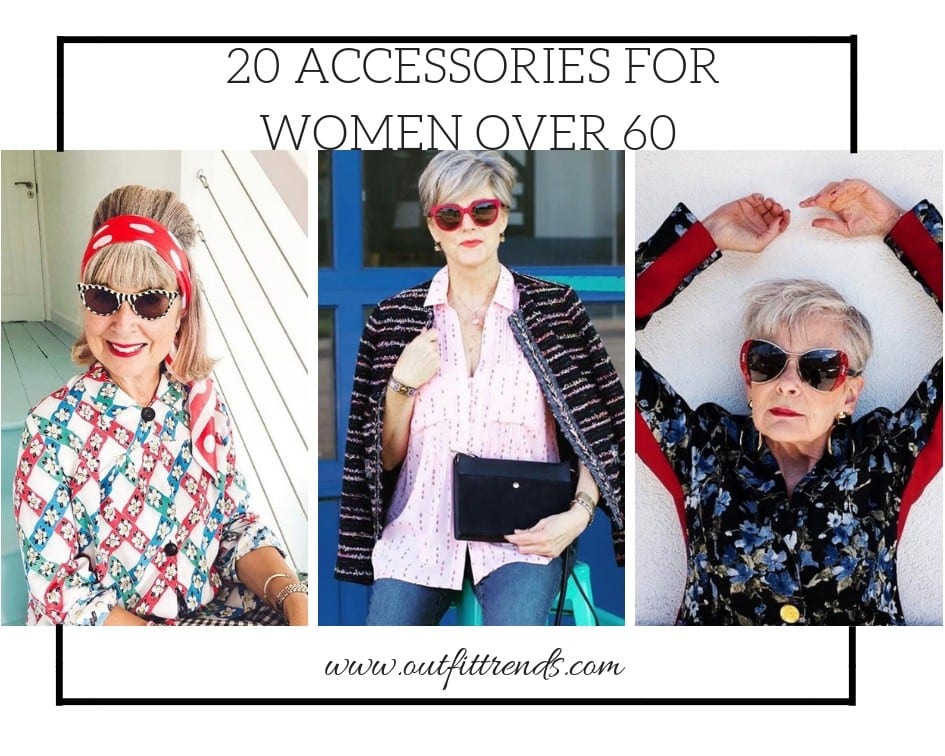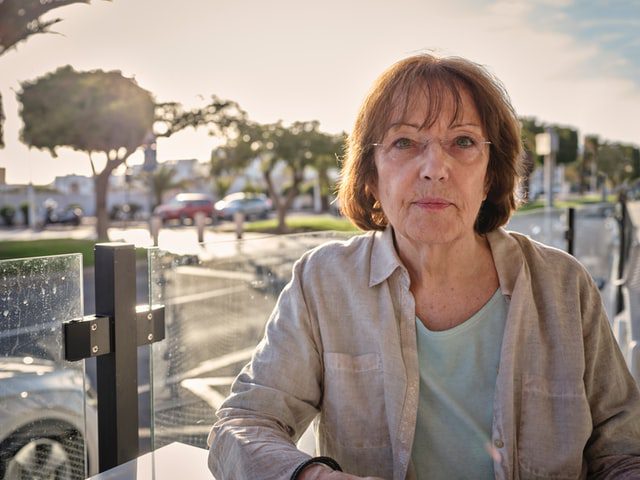No matter your age, developing a skincare routine is essential… even if it can get a little overwhelming at times. And whether you are newly 50 or getting near to it, taking care of your skin is so very important… as well as complicated, I know. After all, there is SO much available on the market these days. You probably don’t even know where to start!
If this is the case, then you have come to the right place. It should be noted that I am not a dermatologist and these are not personal recommendations. For that, you may want to book yourself an appointment with a reputable skin care professional! A dermatologist or esthetician will help you pinpoint your own unique skincare needs as well as help you target your skin concerns. (We won’t be covering specific skin issues like eczema or psoriasis in this article either, just basic skincare!)
Skin Care Tips
Chances are, if you are reading this today, you have some semblance of a skincare routine in place already. If not, we will cover the basics and then we’ll touch on a few things you should keep in mind as you seek to take care of your skin.
- Cleanse, moisturize, sunscreen. No matter what your age, this should be the basis of any good skincare routine. And honestly, if you can manage these three and nothing else, you are doing just fine. (Obviously, using sunscreen should be a part of your morning routine, not a night routine!) Toning, in my opinion, is optional.
- Identify your skin type. Knowing your skin type will help you determine what products you need or should avoid. I believe that skin types can change as we get older. You may have had quite oily skin when you were younger; now you find you get lots of dry patches! Or you may have had normal skin all your life and now you feel like your skin is irritated by everything. If so, you are not alone! If you are not sure what your skin type is, you can either visit a professional (I’ll be saying that quite a lot in this post, I think) or do a little research on your own.
- Find out what irritates your skin. Everybody’s skin is different and you might find that particular brands or products just don’t work for your skin. Most of the time though, it’s individual ingredients that really bother us. Once you identify what those ingredients are, try and avoid them!
- Get rid of old, outdated products. Do a regular clean sweep of your skincare products and ensure you aren’t still using anything that’s older than a year. (Unopened products can last up to two years, or until they expire.) Shelf life varies from product type to ingredients but the rule of thumb is one year. Check the bottles or containers for expiration dates as well.
- Have a morning and night routine. While the basic components of a skincare routine stay more or less the same, a nighttime routine can differ in that you won’t use sunscreen at night and you might swap out your moisturizer for a night cream.
- Use a satin or silk pillowcase. Cotton tends to tug on our skin and cause extra fine lines and wrinkles. Satin or silk is great for our hair and skin alike, helping you avoid frizz and being gentler on the skin.
- Avoid using any products with harsh exfoliants. (We are looking at you, St. Ives Apricot Scrub.) You may have heard this before, but most products that promise a “gentle scrub” or exfoliating effect are pretty harsh on the skin and will cause microscopic tears in your skin’s moisture barrier. There are better ways to exfoliate (which I’ll get to in a minute) so if you are using scrubs or other products that contain walnut shell powder (Juglans Regia is the official name) it’s time to say adios!
- Always use a sun hat in direct sunlight. In conjunction with sunscreen, this is a good way to protect your skin
Taking care of your skin can be a relaxing, enjoyable part of a daily self-care routine. Unfortunately, there’s a lot of confusion out there about how to do it, which can make it considerably less enjoyable. I won’t be getting too deep in this post today, but I will be clarifying a few things and hopefully, helping you pare down the excess of things and helping you understand a bit more about what works and what you should avoid.
First, let’s clarify.
- Just because it’s super expensive doesn’t mean it’s the be-all and end-all. There are lots of affordable products and brands that will achieve similar if not superior results. Your local Target, Walmart, CVS, or Walgreens has a lot of them!
- Just because it says “anti-aging” doesn’t mean it’s a magical product. Most anti-aging products promise a lot but don’t deliver.
- Many skincare professionals recommend using sunscreen every day, even if you are staying at home or if it’s a cloudy day. Picking out a daily sunscreen can be tricky though. You will have to decide if you want what’s called a “chemical” sunscreen or a “physical” sunscreen. More on that in a minute.
- Like sunscreen, there are two main “types” of exfoliation to choose from and one is physical, one is chemical. A physical exfoliator is often a scrub, or a product with a gritty texture, that you rub on your skin to remove dead skin cells. A chemical exfoliant usually has a smooth texture and it will break up and loosen the dead skin cells without having to rub or scrub. (Personally, I prefer chemical exfoliants!)
- The four main types of skin are dry, oily, normal, and combination. There’s also sensitive skin. However, our skin is very rarely just one type. You might have dry, sensitive skin prone to acne. Or you might have normal skin with an oily t-zone. Or any other combination thereof!
Pro Tip: There are always two things I do before buying any skincare product. I read the reviews on it (or look up reviews on YouTube or via Google) and I try and get a sample of it. This is a great way to save money. Hopefully, you do the same if any of these products tickle your fancy!
Best Skincare Products
↓ Anti-Aging Night Cream for Deep Wrinkles
Retinoids are the ultimate anti-aging treatment. This night cream contains retinol, which will help reduce fine lines and wrinkles by increasing the production of collagen in your skin. Apply this cream last in your nighttime routine, and be SURE to use sunscreen the following day, as retinoids tend to increase skin sensitivity.
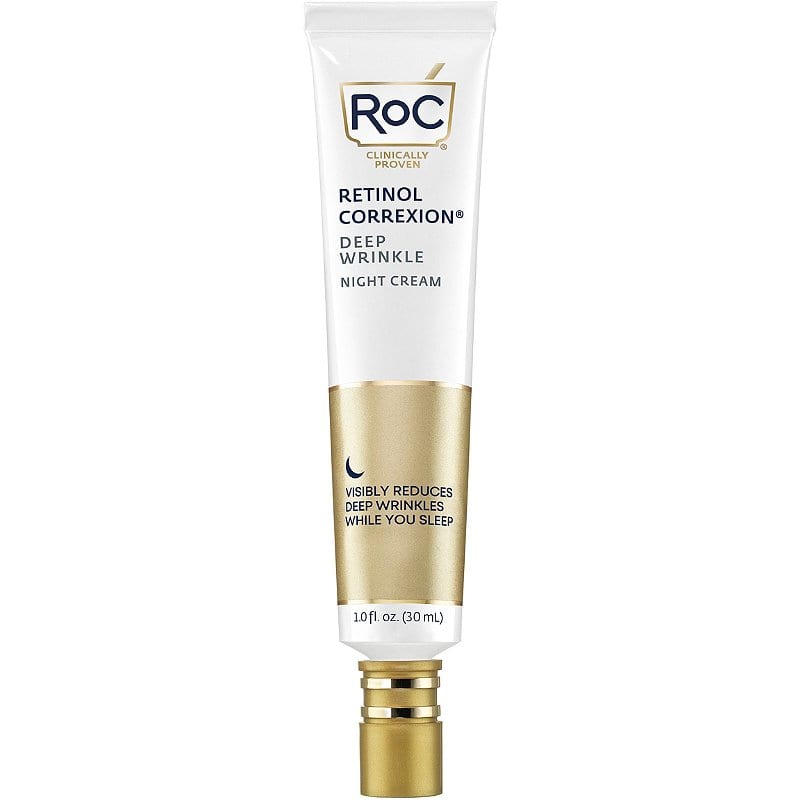
↓ Everyday Anti-Aging Serum
“Buffet” from The Ordinary is like a multivitamin for your face! It’s chock-full of peptides and targets multiple signs of aging with an array of ingredients. To use this serum, you would apply 2-3 drops to your skin after cleansing, usually in the morning. Let it sink into your skin before applying moisturizer.
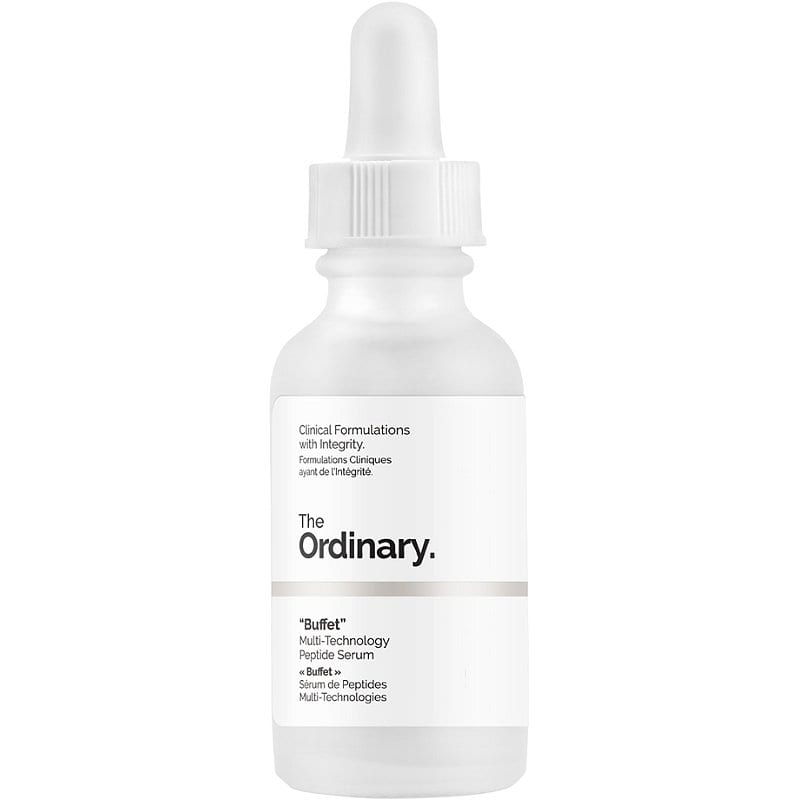
↓ Most Affordable Cleanser (Sensitive, All Skin Types)
A personal favorite of mine is the Vanicream cleanser which is super gentle and great for all skin types, but particularly sensitive skin. It’s formulated without dyes, parabens, fragrances, and more. This cleanser will gently cleanse your skin without leaving it feeling stripped, red, or irritated.
Available on Amazon for $11.70
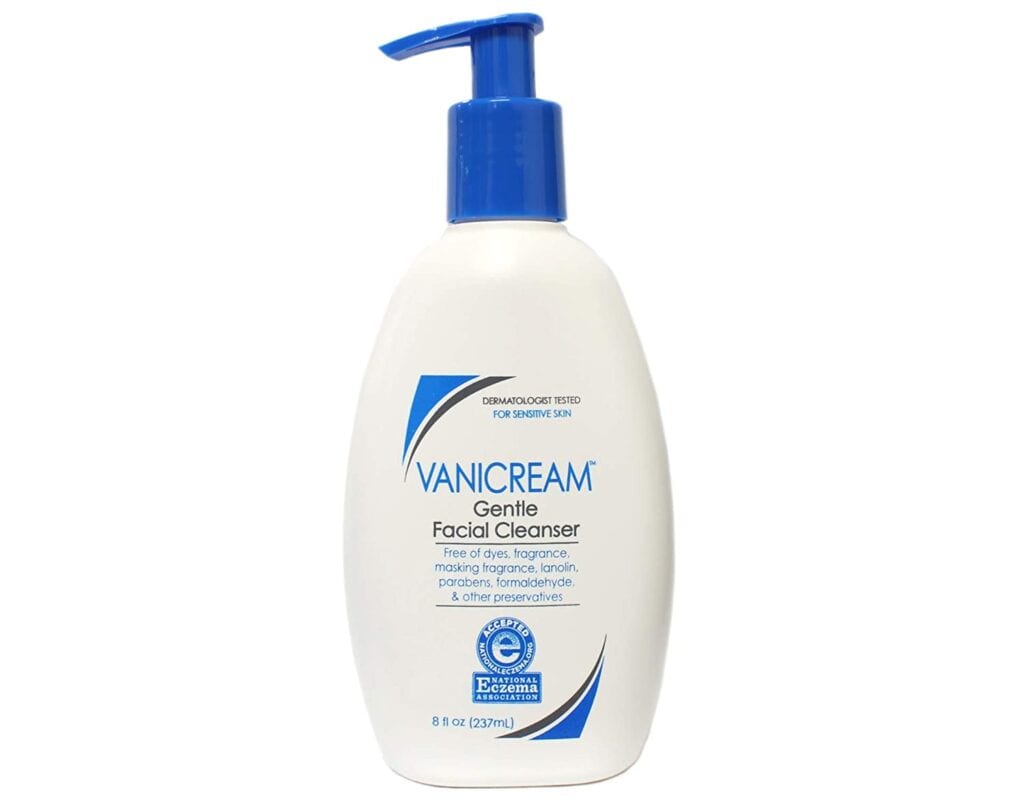
↓ Hydrating Facial Cleanser (Normal/Dry Skin)
As we get older, our skin tends to get a little more sensitive and dry. If you struggle with dry skin. you might want to try this dermatologist-recommended cleanser which you can find in your local Target, Walmart, or Walgreens. It has a creamy, lotion-like texture and contains essential ceramides as well as hyaluronic acid to hydrate your skin.
Now, if you tend to wear a lot of makeup, you may want to double-cleanse. It’s not as thorough a cleanse as the Vanicream but its basic formulation and the hydration-based formula work well for very dry skin. Plus, if you have always used harsh, stripping kinds of cleansers, this one will help repair your skin’s moisture barrier and restore balance.
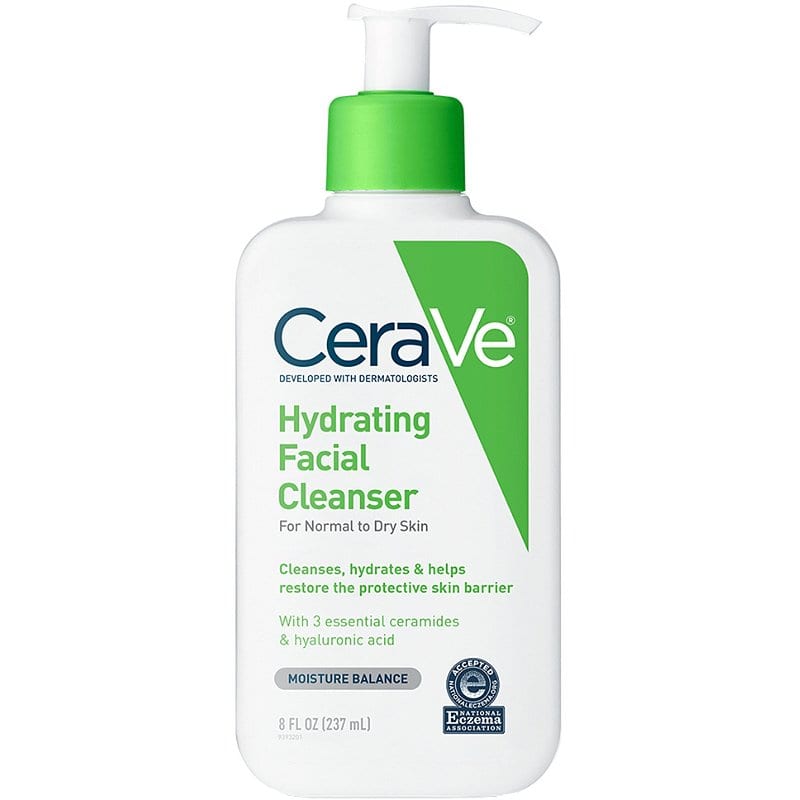
Pro Tip: Don’t fall for the hype of spending tons of money on expensive cleansers chock full of pricey ingredients. In my opinion, your facial cleansers can be basic and affordable. Why? Because you only have a cleanser on your skin for about 30 seconds anyway, and then you rinse it off. If there are ingredients in those fancier, more expensive options that you want to use for your skin, great. Buy them separately in a more lasting form, like a moisturizer or serum, and save your money by keeping your cleansers simple and effective.
↓ Gentle Rosewater Toner
A toner can help maintain the pH balance of your skin after cleansing as well as provide another layer of moisture before layering on your other products. Thayer’s Witch Hazel has always been a popular choice for lots of us, but despite it being an alcohol-free formula, I still find it too drying. Instead, I think this gentle rosewater toner is a good option. You can spritz it onto a cotton round and gently smooth it over your face just after cleansing. Let it dry and then move on with the rest of your routine.
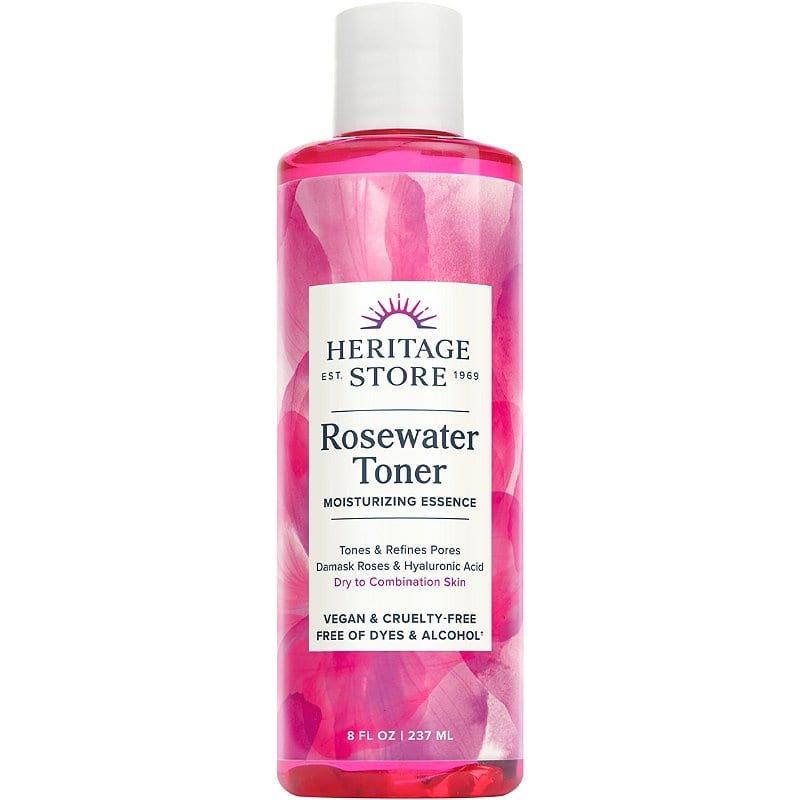
↓ Day & Night Moisturizing Cream
As you get older, you may find that creams are just a little bit more moisturizing and comforting to your skin than basic facial lotions. That’s why many love this peptide-full, squalane-based day & night cream that will smooth over your skin like butter. It will also repair dehydrated skin. Apply this moisturizer after your toner and/or serum and before your sunscreen.
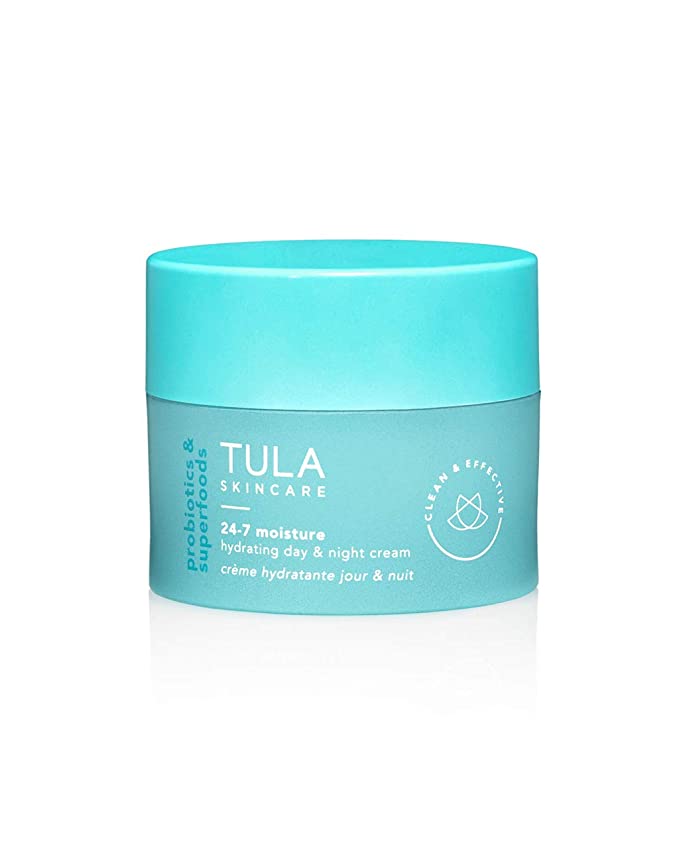
↓ Moisturizing Mineral (Physical) Sunscreen
The Kinship Self-Reflect sunscreen is another product I have personally used that I really like! Remember how I mentioned that there are basically two types of sunscreen? This is what’s called a physical sunscreen. A physical sunblock will sit on top of your skin and reflect the sun’s rays (rather than absorb them, the way chemical sunscreens do). Zinc oxide and titanium oxide are the primary active ingredients of a mineral (or physical) sunscreen.
This product contains 22.4% zinc oxide and won’t leave a white cast on your skin (as most physical/mineral sunblocks do). It has a slight tint to it which is really nice. Plus, it’s moisturizing and will leave you with a smooth glow!
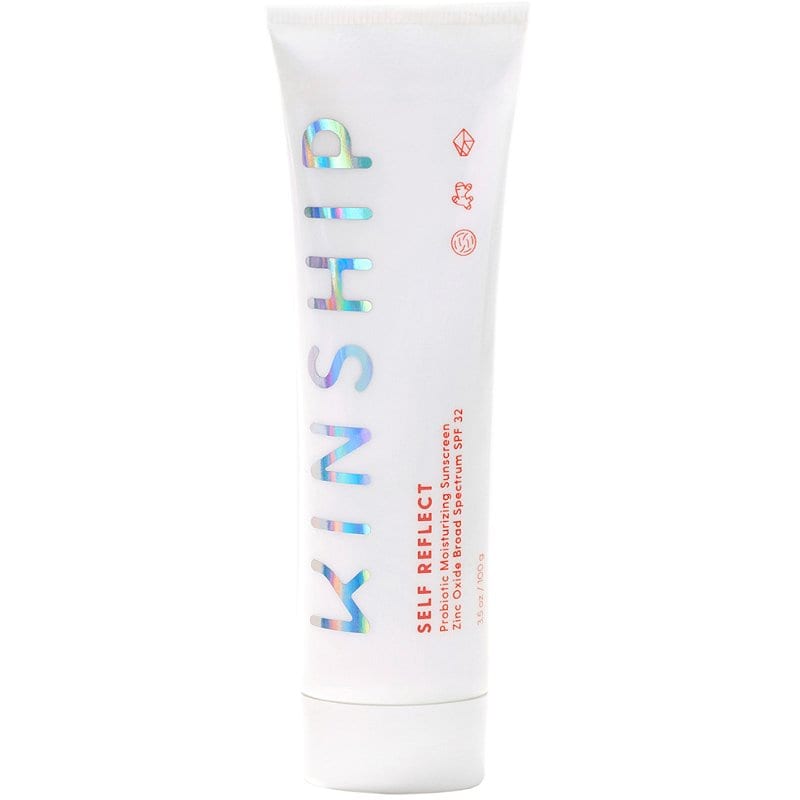
↓ Crowd Favorite Sunscreen
This Supergoop sunscreen has garnered rave reviews. It has a gel-like formulation and is great for those with skin concerns such as fine lines and wrinkles, dullness, or uneven tone. It is described as an invisible, weightless, scentless, and makeup-gripping daily primer with an SPF of 40.
Get it at Sephora for $34
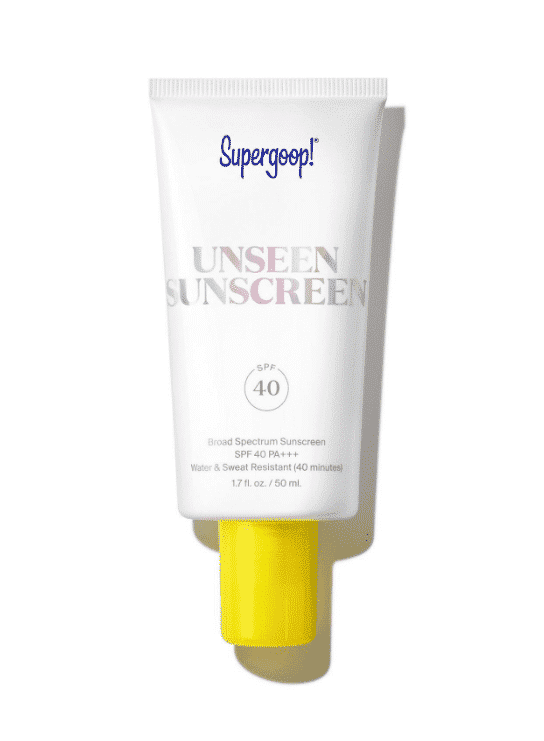
↓ Ultimate Exfoliating Lactic Acid Treatment Serum
When it comes to achieving healthy, glowing, younger-looking skin, this product has garnered quite the cult-like following… and it’s one of those rare products that live up to the hype. While it’s on the pricier side of things, I can say from personal experience that it is totally worth it.
When it comes to chemical exfoliation, you’ll hear the word “acid” get thrown around a lot. While I won’t be diving into all the particulars of what chemical exfoliants are, what the best options are for your skin type, etc. I can say that this product utilizes what’s called lactic acid, which is a milder AHA than, say, glycolic acid, and is less likely to irritate your skin. Combined with botanical ingredients designed to soothe and hydrate your skin, you can use this serum in the morning or night.
Get it at Sephora for $85
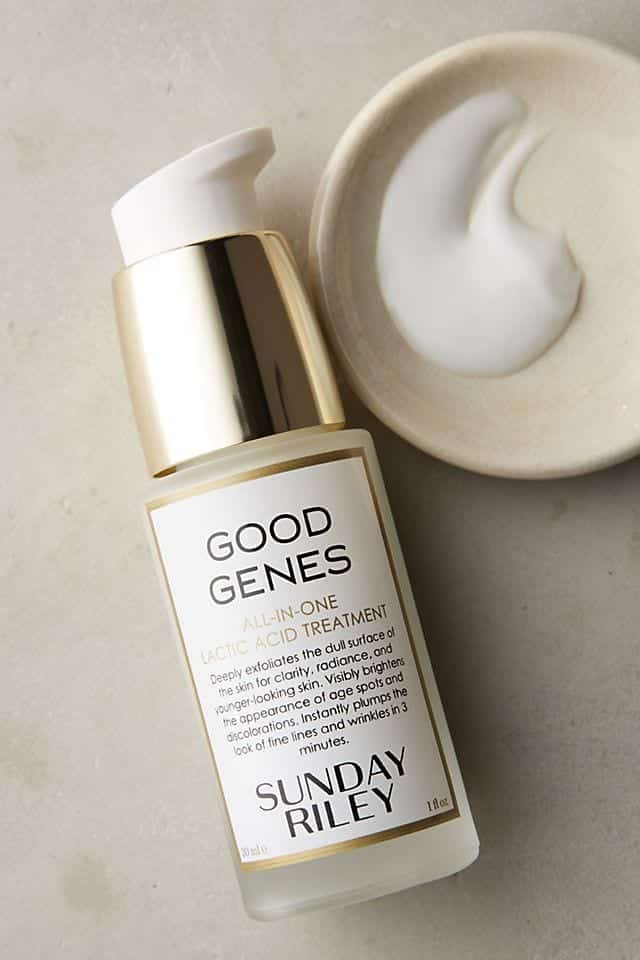
While there are plenty of other products on the market today that will help you address your specific skincare concerns (from hyperpigmentation to eczema to sun damage and everything in between) I firmly believe in the value of a solid foundational routine. Hopefully, these products I shared here today have given you an idea of what such a routine can look like for a mature woman.
Let us know in the comments if you have used any of these products before and what your experience was with them! Plus, I’d love to hear what your skincare routine is looking like as you explore life in your 50s. Did you learn anything new from today’s post? Is there anything you can share with the rest of us from your own experience? Leave us a comment and let us know!

